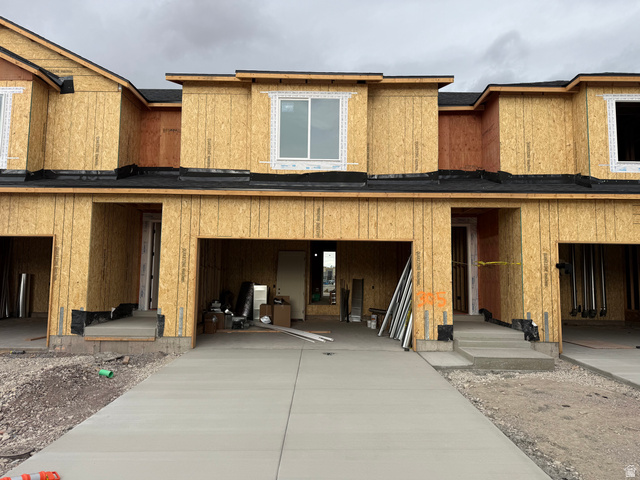
As a homeowner, it's crucial to understand the importance of home insurance and how it can protect
your valuable asset. To help you navigate the world of home insurance, we've compiled a list of
essential insights you should be aware of. These key points will ensure you're well-prepared for any
unexpected situations.
Understand the Different Types of Home Insurance Policies
As a homeowner, it is very important to be familiar with various home insurance policies before
choosing the one that best suits your needs. Although this may be challenging, the internet can be a
handy tool in navigating this situation. You can dig deep on multiple websites, like the Assurance comparison page or visit a
professional for a consult.
Here are some of the most common types of home insurance policies to get you started:
- HO-1: Basic form policy covering a limited number of perils
- HO-2: Broad form policy offering coverage for additional perils
- HO-3: Special form policy providing comprehensive coverage for most risks
- HO-5: Comprehensive form policy covering a wide range of perils
- HO-6: Condo/co-op owner policy designed for condominium and cooperative unit owners
- HO-8: Modified coverage form policy for older homes
Know the Difference Between Replacement Actual Cash and Cost Value
Understanding the difference between replacement cost and actual cash value is crucial when selecting
a home insurance policy.
Replacement cost coverage will pay to repair or rebuild your home with materials of similar quality
without considering depreciation. On the other hand, actual cash value takes depreciation into
account, resulting in a lower payout.
Familiarise Yourself with Policy Exclusions
Insurance policies typically have exclusions, which are specific situations or items that are not
covered. Common exclusions include floods, earthquakes, and damage due to neglect. You may need to
purchase additional coverage, such as flood or earthquake insurance, to protect your home from these
risks.
Maintain an Up-to-Date Home Inventory
Explore Utah Real Estate

83 W 850 S, Centerville, UT
$815,000
Bedrooms: 5 Bathrooms: 3 Square feet: 3,999 sqft

653 E RYEGRASS DR #305, Eagle Mountain, UT
$387,900
Bedrooms: 3 Bathrooms: 3 Square feet: 1,985 sqft

2098 E GOOSE RANCH RD, Vernal, UT
$103,000
Square feet: 274,864 sqft
Having a comprehensive and up-to-date home inventory is crucial for ensuring that you receive a fair
payout in the event of a claim. Be sure to document your possessions, including their make, model,
and serial numbers. Store this information in a safe place, preferably off-site or in a digital
format, and update it regularly.
Bundle Your Policies to Save Money
Combining your home insurance policy with other policies, such as auto or life insurance, can result
in significant savings. Many insurance providers offer discounts for bundling multiple policies, so
be sure to inquire about these opportunities when shopping for coverage.
Review Your Policy Annually
Your insurance needs may change over time, so it's essential to review your policy annually. This
review will help you identify any gaps in coverage, as well as determine if you qualify for new
discounts or need to adjust your coverage limits.
Understand Your Deductible
The deductible is the amount you're responsible for paying before your insurance coverage kicks in. A
higher deductible typically results in lower premium payments, but it also means you'll pay more
out-of-pocket in case of a claim. Ensure you're comfortable with your deductible amount and
understand how it affects your overall policy.
Consider Additional Liability Protection
More Properties You Might Like

2148 E GOOSE RANCH RD, Vernal, UT
$116,000
Square feet: 309,276 sqft

2031 N LAVA ROCK CIR #107, St George, UT
$4,185,000
Bedrooms: 4 Bathrooms: 5 Square feet: 5,404 sqft

6668 S 3200 W, Spanish Fork, UT
$2,074,000
Bedrooms: 3 Bathrooms: 3 Square feet: 2,560 sqft
Standard home insurance policies often provide limited liability coverage, which may not be enough to
protect your assets in the event of a lawsuit. Consider purchasing additional liability protection,
such as an umbrella policy, to safeguard your finances.
Be Aware of Common Home Insurance Discounts
Numerous discounts are available to homeowners, such as discounts for having a security system,
bundling policies, or being claims-free. Be sure to ask your insurance provider about any discounts
you may qualify for.
Keep Your Insurer Informed of Changes
If you make significant changes to your home, such as renovations or adding a new structure, notify
your insurance provider. These changes may affect your coverage needs or the value of your home, and
it's essential to ensure that your policy reflects these updates. Failing to inform your insurer of
such changes could result in inadequate coverage or even a denied claim.
Final Thoughts.
In conclusion, understanding and managing your home insurance policy is crucial for every homeowner.
You can ensure your home and assets are well-protected by staying informed about policy types,
exclusions, discounts, and additional coverage options. In addition, regularly reviewing and
updating your policy can help you adapt to changing circumstances and maintain adequate coverage.
This way, you can have peace of mind, knowing you are prepared for unexpected events that may affect
your home.
Related Articles:











